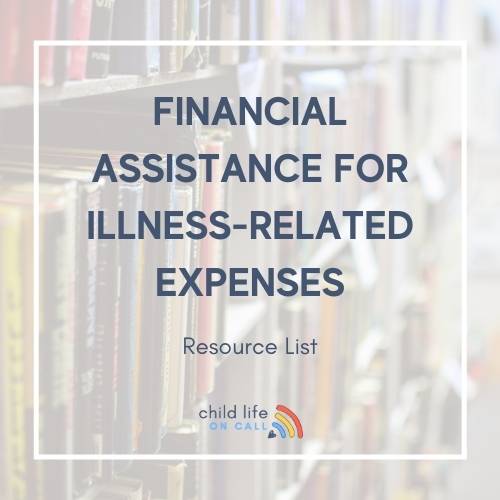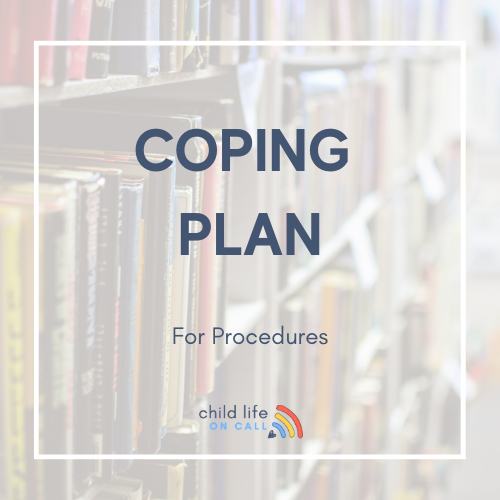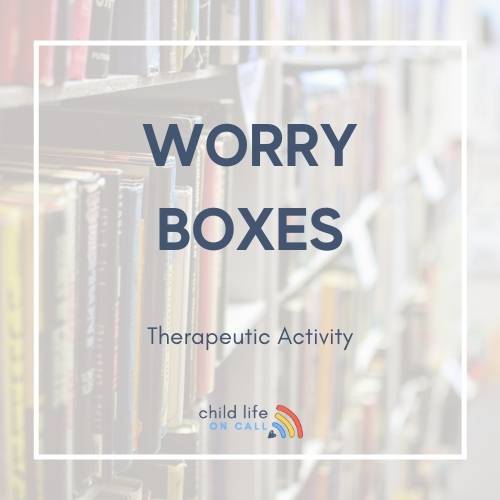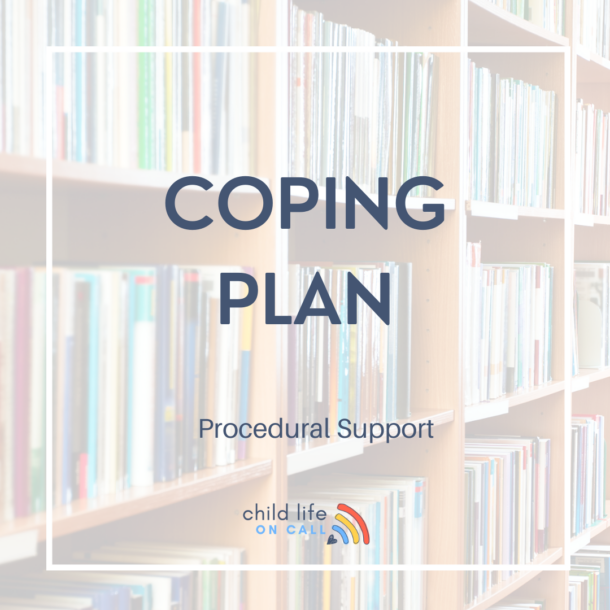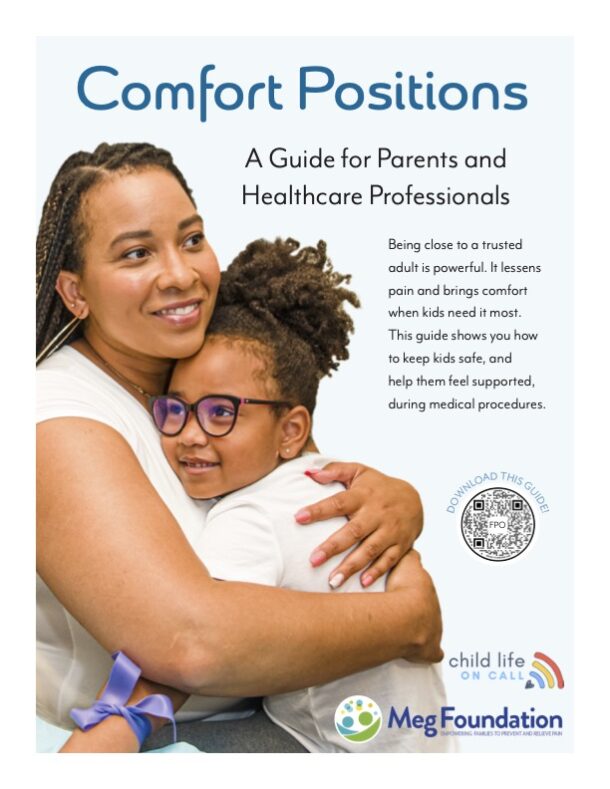Foster parents take on so much responsibility and go through so much change when they accept a child into their home. Becoming a foster parent isn’t just about having fun with a child. It’s about loving them and helping them grow into healthy adults. Being a foster parent means having to deal with lots of extra responsibilities, but it also brings a lot of added stresses. Between the constant paperwork and training and the constant scheduling for appointments with case workers, it’s so easy to get overwhelmed by the demands of caring for a foster child. That’s why it is so important for both parents and professionals to know the special circumstances around supporting foster children when they go to the hospital.
Why is this important?
There were an estimated 407,000 children in foster care at the end of 2020 according to the Administration for Children and Families (2021). Of these children, nearly half have chronic medical problems and unmet health needs (McKennon et al., 2009). The American Academy of Pediatrics (AAP) has called attention to this problem and recommended that pediatricians screen all children in foster care for developmental delays and other conditions.
The AAP also recommends that pediatricians provide anticipatory guidance about the transition from child welfare services to independent living and work with families on issues such as housing, employment, education, and access to health care (American Academy of Pediatrics, 2019). This includes providing information about how to support foster youth during times of illness or injury.
What should I do if my child becomes ill while in foster care?
It can be very stressful for any family to experience a serious illness or injury. When you are a foster parent, your stress level may increase because you don’t want to cause harm to the child you love. You may feel guilty for not being able to protect him/her from something bad happening. However, there are things you can do to help your child stay safe and well-cared for.
First, talk to your social worker about what steps need to be taken to ensure your child’s safety. Your social worker will be able to tell you whether your child needs to see a doctor right away. If your child does need to see a doctor, he/she will likely be sent to one of several hospitals where doctors specialize in treating children who are sick or injured. These hospitals include:
• Pediatric Emergency Department (PED)
• Pediatric Intensive Care Unit (PICU)
• Pediatric Trauma Center
• Pediatric Surgery Clinic
• Pediatric Rehabilitation
What kind of special care do foster children need in the hospital?
Children in foster care often come from traumatic backgrounds and have a complexity of behavioral or emotional issues associated with their past trauma. When caring for a known foster child in a medical setting, there are unique needs that foster children present. Some needs are common for all children, but a child’s trauma history can exacerbate the needs they present with. So, what do healthcare providers and others need to know about children in foster care?
- Language used around children with trauma needs to be carefully considered. Some topics to be carefully considered include using the word “home” as “home” is a complicated term for a child in foster care. Home could mean their biological parents, or it means a foster home, and not necessarily the foster home they are currently in.
- Be mindful of trauma triggers. Children with a history of abuse need procedure support during procedures and basic exams. Being touched can be extremely difficult and distressing. Consent and patience are important in these situations. Children should be prepared for what sensations they may experience and a person the child identifies as a safe and trusting individual should be present.
- Pre-existing behavioral and developmental issues. Children who have experienced trauma are often developmentally delayed. Rule of thumb when assessing a child who has experienced trauma, is they tend to become “stuck” developmentally at the age they were when they experienced trauma. An 8-year-old who experienced trauma when they were 4 may be developmentally four in many ways. A child’s “difficult” behavior in response to stressful situations are maladaptive coping mechanisms they established. A child is reacting to a stressful situation the only way they know how. Preparation and teaching of coping skills is especially important for these children. Referring to other professionals such as social workers or play therapists can also provide greater insight into a child’s behavioral responses and developmental delays in relation to their trauma.
- Children in foster care often struggle with attachment issues. They haven’t had someone providing for them, meeting their needs, and can have a mistrust of the world around them. Being hospitalized is already scary and stressful for a child without a trauma history. For a child who has not had consistent caregivers, been displaced, and experienced a lack of consistency, the unfamiliarity of a hospital can cause immense stress.
What can professionals do to best care for foster children in the hospital?
Knowing how foster children can differ from normally developing, non-traumatized children, how can we as child life specialists or other pediatric professionals alleviate stress, provide support, build a relationship, and ensure a trauma-informed care approach to care?
- Build rapport! Take time before meeting a child to gather information from a person who may know the child best. This will not always be a parent. A foster parent may not have all the information on a child in their care. The person that knows the child best may be a CPS Caseworker, CASA (court-appointed special advocate) worker, Child Placing Agency Case Manager, or attorney. These individuals make up the child’s support system. Use the information obtained from the child’s supporting adults to engage the child.
- Provide normalcy! For foster children, routine and normalcy is so important. Within child placing agencies, normalcy is stressed so much because of the benefits play and recreation have for all children. Child life specialists are so vital for children in foster care in a hospital setting because they can help create interventions that support normalcy for the child who has lacked normalcy in their life. Children in foster care often have unique family visitation needs. Ensuring a child is continuing to be connected to the adults they trust and feel safe with is an important part of normalcy as well as trying to accommodate a child’s family visitation needs. Siblings can be a comfort factor in the hospital and for children in foster care who may be disconnected from much of their family, maintaining these biological relationships is important for the child’s development.
- Have a routine! Children need consistency and to know what to expect. In a setting like a hospital where routines are disrupted, the environment is unfamiliar, it is important to establish new routines that create a sense of predictability. Foster children tend to thrive under routine and predictability. Routine can be created through having a structured plan each day involving schooling, therapy, family time, play time, and ensuring these normalcy activities are taking place around medical care. Consistency in caregiving helps build trust. While in the hospital, it can be difficult for certain providers to remain the same such as nurses, other individuals can remain consistent members of the treatment team such as child life specialists, primary attending on the case, and therapists. As a child builds relationships with these consistent care providers, they become vital factors in helping alleviate stress, increase coping, and provide support.
- Validate emotions. Being in the hospital is hard for any child and their family. The added layer of trauma can create additional needs for a child and requires special consideration when providing care. Validating a child’s big feelings helps support their emotional development, coping skills, and build trust with adults.
- Emphasizing comfort items. Foster children often have very few treasured possessions. During an emergency removal, a child may not be able to get everything they wanted. Pictures are very important for foster children. Foster children use pictures to keep their loved ones close. Comfort items like these pictures of their loved ones can help make the child feel more at ease in the hospital.
Having a child that is hospitalized is stressful for any parent. Foster parents already have so much on their plate and by being informed as professionals, we can help alleviate this stress by taking the child’s special circumstances into consideration and assisting the foster parents where we can, whether it is by giving printouts of visit summaries, filling out a form they need for their caseworker, or offering to sit with the child if a parent must step out. Foster parents work hard to give the best care to the children in their homes and as professionals, we should strive to do the same.
References
Del Vecchio, Tamara & Erlanger, Ann & Slep, Amy. (2012). Theories of child abuse.
National data shows number of children in foster care decreases for the third consecutive year. Administration for Children & Families. (2021, November 19). Retrieved September 13, 2022, from https://www.acf.hhs.gov/media/press/2021/national-data-shows-number-children-foster-care-decreases-third-consecutive-year
Mekonnen R, Noonan K, Rubin D. Achieving better health care outcomes for children in foster care. Pediatr Clin North Am 2009;56:405–15.
Shields, Erin. (2015). “How Can I Help?” The Role of Child Life in Supporting the Hospitalized Child’s Transition into Foster Care. 10.13140/RG.2.1.4360.3362.



